Let’s take a look at the 5 books that capture the essence of the tragedy of the Twin Towers that shook America and the rest of the world on 9/11.
As the years pass, the events of September 11, 2001, remain etched in the collective memory of the world. The tragic day when the Twin Towers of the World Trade Center fell, the Pentagon was attacked, and Flight 93 crashed in Pennsylvania, changing the course of history. While we remember the heroes, the victims, and the resilience of people, literature plays a significant role in preserving the emotions, experiences, and aftermath of that fateful day. In this listicle, we engage with five powerful pieces of literature that individually and together perfectly capture the essence of 9/11.
1. Historical Context: The Looming Tower
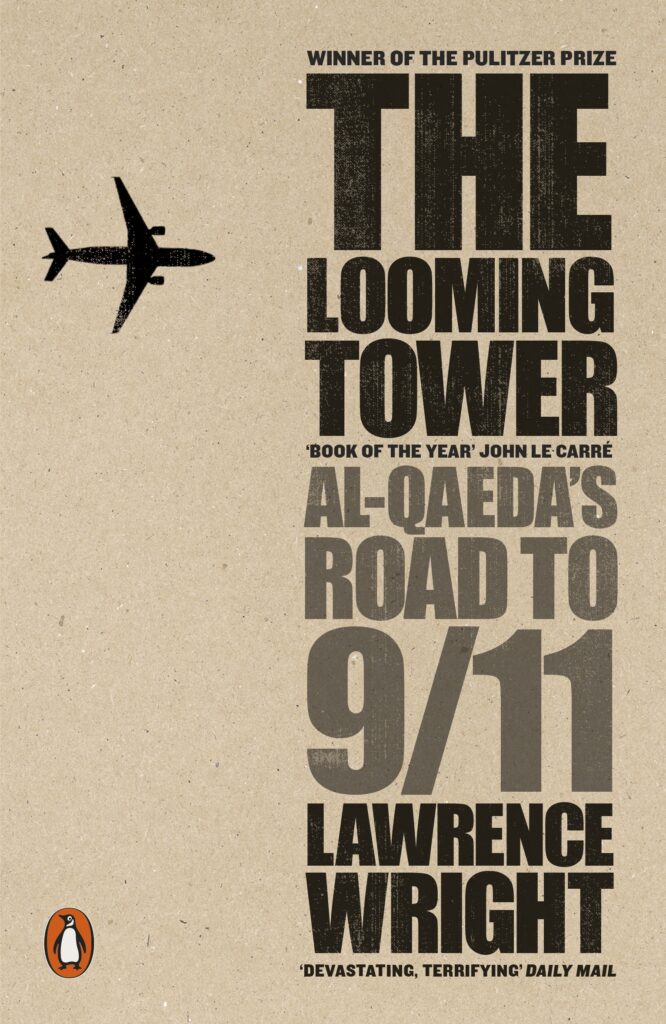
The Looming Tower by Lawrence Wright is a gripping work of non-fiction that serves as a meticulously researched and compelling narrative, offering a comprehensive exploration of the historical context leading up to the catastrophic events of September 11, 2001. Wright’s magnum opus provides an unprecedented glimpse into the rise of al-Qaeda, the complex web of ideologies, personalities, and geopolitical factors that fueled it, and the relentless pursuit by intelligence agencies to thwart its ambitions.
Wright’s narrative unfolds like a suspense thriller as he traces the lives of key figures in the lead-up to 9/11, including Osama bin Laden, Ayman al-Zawahiri, and John O’Neill, an FBI counterterrorism agent. Through extensive interviews and access to classified documents, he skillfully weaves together their personal stories, revealing the motivations, radicalization, and intricate relationships that contributed to the planning and execution of the attacks.
What sets The Looming Tower apart is Wright’s ability to humanize these characters, making them three-dimensional figures rather than one-dimensional villains. He delves deep into their backgrounds, showing how their experiences and beliefs shaped their paths and, ultimately, led to a collision course with history.
Furthermore, the book sheds light on the failures and missteps of intelligence agencies in the United States and abroad. Wright dissects the bureaucratic rivalries and communication breakdowns that hindered the sharing of vital information, which might have prevented the tragic events of 9/11. He underscores the importance of understanding these systemic issues to prevent similar catastrophes in the future.
2. Harrowing Account: 102 Minutes
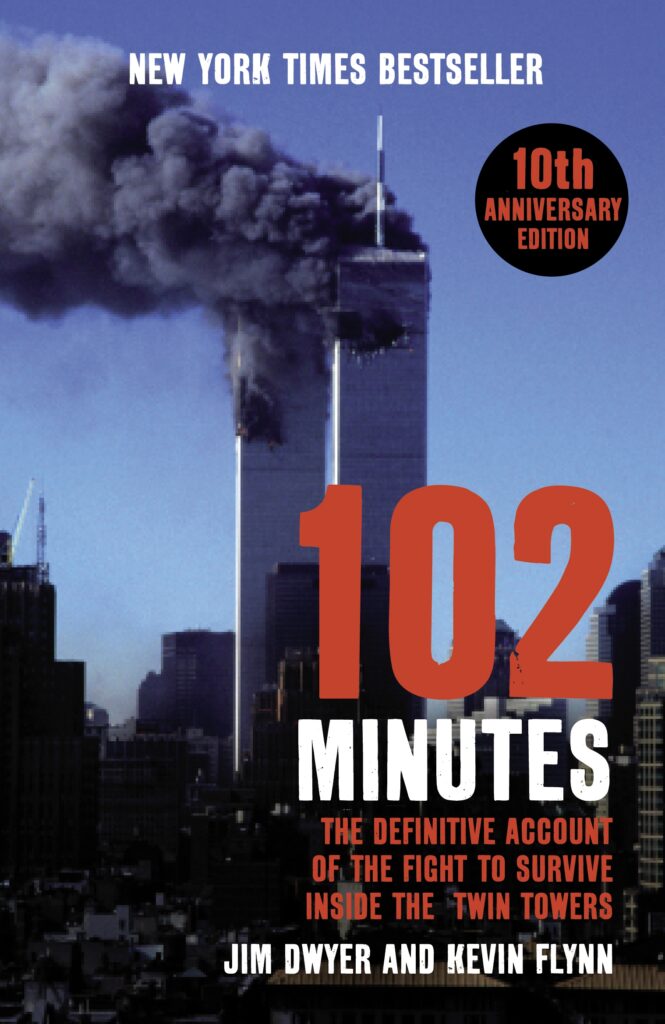
Courtesy @Penguin Books
102 Minutes: The Untold Story of the Fight to Survive Inside the Twin Towers by Jim Dwyer and Kevin Flynn offers an intimate and harrowing account of the tragic events that unfolded inside the World Trade Center on September 11, 2001. The authors, through extensive research and personal interviews, provide readers with an immersive, minute-by-minute narrative of the 102 minutes between the impact of American Airlines Flight 11 and the collapse of the South Tower.
The book introduces us to the ordinary men and women who found themselves in extraordinary circumstances that day—office workers, firefighters, police officers, and first responders. Through their stories, we witness the sheer terror, confusion, and courage that marked those moments. Dwyer and Flynn’s vivid and compassionate storytelling humanizes the individuals caught in the midst of unimaginable chaos. Through their attention to detail, readers gain a visceral understanding and profound appreciation for the resilience and heroism displayed by people from all walks of life.
One of the book’s most powerful aspects is its focus on the human spirit and the determination to survive against all odds. The authors emphasize the importance of human connection and collaboration during moments of crisis. 102 Minutes is not just a historical account of the events; it’s a poignant and heart-warming tribute to the indomitable human spirit and the capacity of ordinary individuals to show extraordinary bravery when faced with unimaginable challenges.
Also Read: Explore the World: A Literary Tour Through Paris in 10 Books
3. Heroic Response: Firehouse
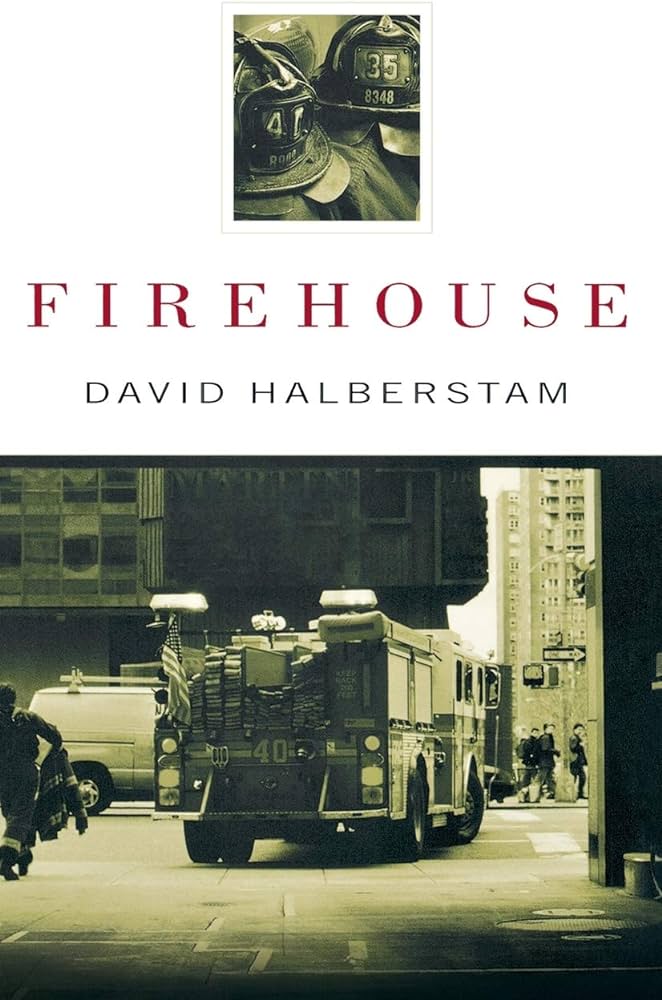
Firehouse by David Halberstam is a powerful and deeply moving account of the firefighters of Engine 40, Ladder 35, a firehouse located in the heart of Manhattan, blocks away from the World Trade Center. The book chronicles the lives and experiences of the firefighters who served at this firehouse and provides a vivid portrayal of the events of September 11, 2001, from their perspective.
Halberstam’s narrative introduces readers to the close-knit community of firefighters, their camaraderie, and their unwavering dedication to duty. He delves into the backgrounds and personal stories of these men, offering insights into their motivations for choosing a career in firefighting and their commitment to serving their fellow citizens.
The heart of the book lies in its detailed and harrowing description of the firefighters’ response to the 9/11 attacks. Halberstam vividly captures the chaos and confusion of that fateful day, conveying the urgency and courage displayed by these first responders as they rushed into the burning towers to save lives. The book also explores the profound sense of loss and grief experienced by the firefighters as they grappled with the devastating toll the attacks took on their colleagues and the city they loved.
Firehouse is an emotionally charged tribute to the heroism and sacrifices of the firefighters of Engine 40, Ladder 35. It serves as a testament to the selflessness and bravery of all first responders on 9/11. It is a compelling and detailed account that offers readers a profound understanding of the events of that tragic day from the perspective of those on the front lines, highlighting the human cost and resilience in the face of one of the darkest moments in American history.
4. Healing City: After the Fall
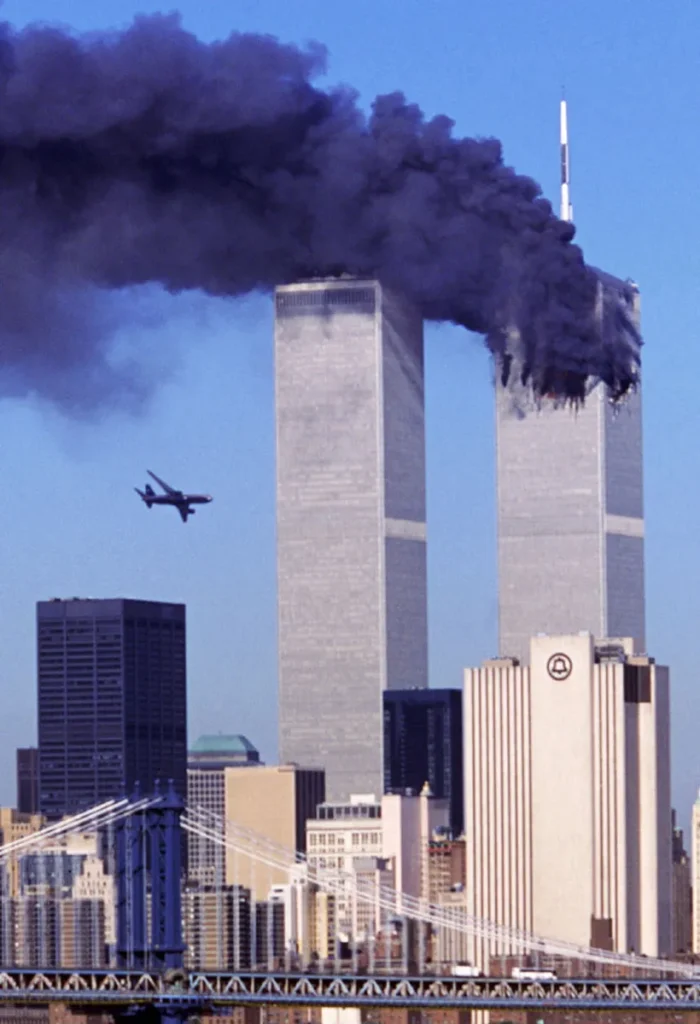
After the Fall: New Yorkers Remember September 2001 and the Years That Followed, edited by Mary Marshall Clark, Peter Bearman, and Catherine Ellis, is a compelling collection of oral histories and interviews that provide an intimate and multi-faceted look at the impact of the 9/11 attacks on the people of New York City. In the wake of the tragedy, this book captures the resilience and collective memory of a community deeply affected by the events of that fateful day.
The book features diverse voices, from survivors and witnesses to first responders and ordinary citizens. Through their personal accounts, readers gain a profound understanding of the emotional toll, the communal solidarity, and the transformation of New York City in the aftermath of the attacks. The stories reveal the depth of grief and loss experienced by individuals and families and simultaneously shine a light on the strength and determination that emerged as the city rallied together to heal and rebuild.
One of the book’s most compelling aspects is its focus on the enduring impact of 9/11, extending beyond the immediate aftermath. Readers witness how the events of that day shaped the lives, perspectives, and decisions of New Yorkers in the years that followed. After the Fall serves as a powerful testament to the resilience and spirit of a city that refused to be defined solely by tragedy, highlighting the ongoing process of remembering and recovering.
5. Hagridden Perspective: The Reluctant Fundamentalist
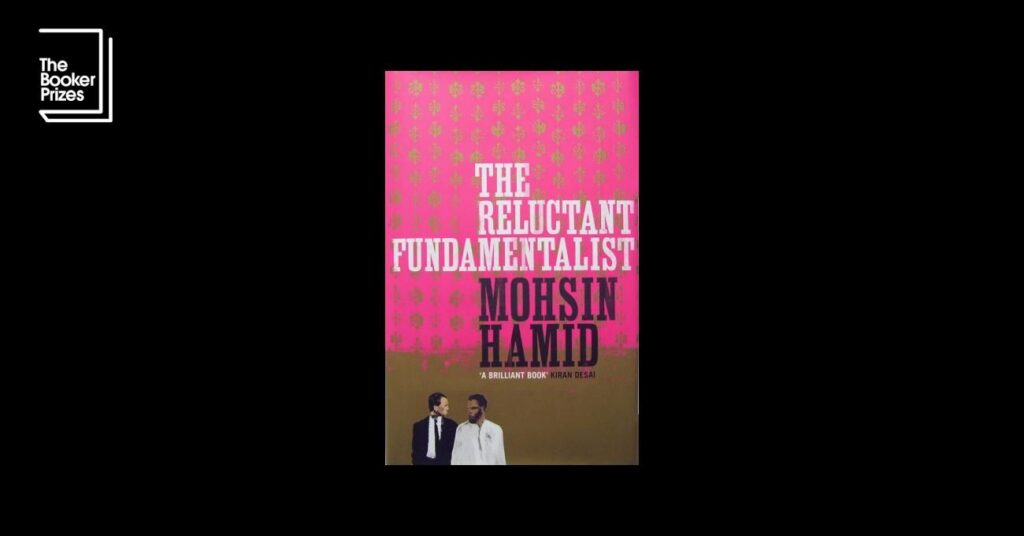
The Reluctant Fundamentalist by Mohsin Hamid is a thought-provoking and timely novel that provides a unique perspective on the post-9/11 world. The story is narrated by Changez, a Pakistani man who once thrived in the corporate world of Manhattan but is increasingly disillusioned by the American dream and the pervasive prejudice and fear that followed the 9/11 attacks. Through Changez’s narrative, readers witness the transformation of a character who, while initially enamoured with American culture and success, becomes a symbol of the complex tensions between East and West in the aftermath of the tragedy.
As Changez recounts his experiences, readers are drawn into a narrative that explores themes of identity, belonging, and the impact of global events on individual lives. Hamid’s writing is both introspective and evocative, immersing the reader in Changez’s internal struggle as he grapples with the choices he must make in a post-9/11 world. The novel’s title itself reflects the character’s internal conflict, highlighting the reluctance to fully embrace a fundamentalist ideology while feeling compelled to reassess his own values and allegiances.
The Reluctant Fundamentalist is a compelling exploration of the complexities of identity and the consequences of a world forever changed by the events of 9/11. It invites readers to confront their biases and assumptions while immersing them in a narrative that is gripping and thought-provoking. Hamid’s novel challenges us to examine the impact of global politics on individual lives and leaves us with a profound sense of the human cost of a world divided by fear and mistrust.
Also Read: Every Mira Nair Film Ranked

